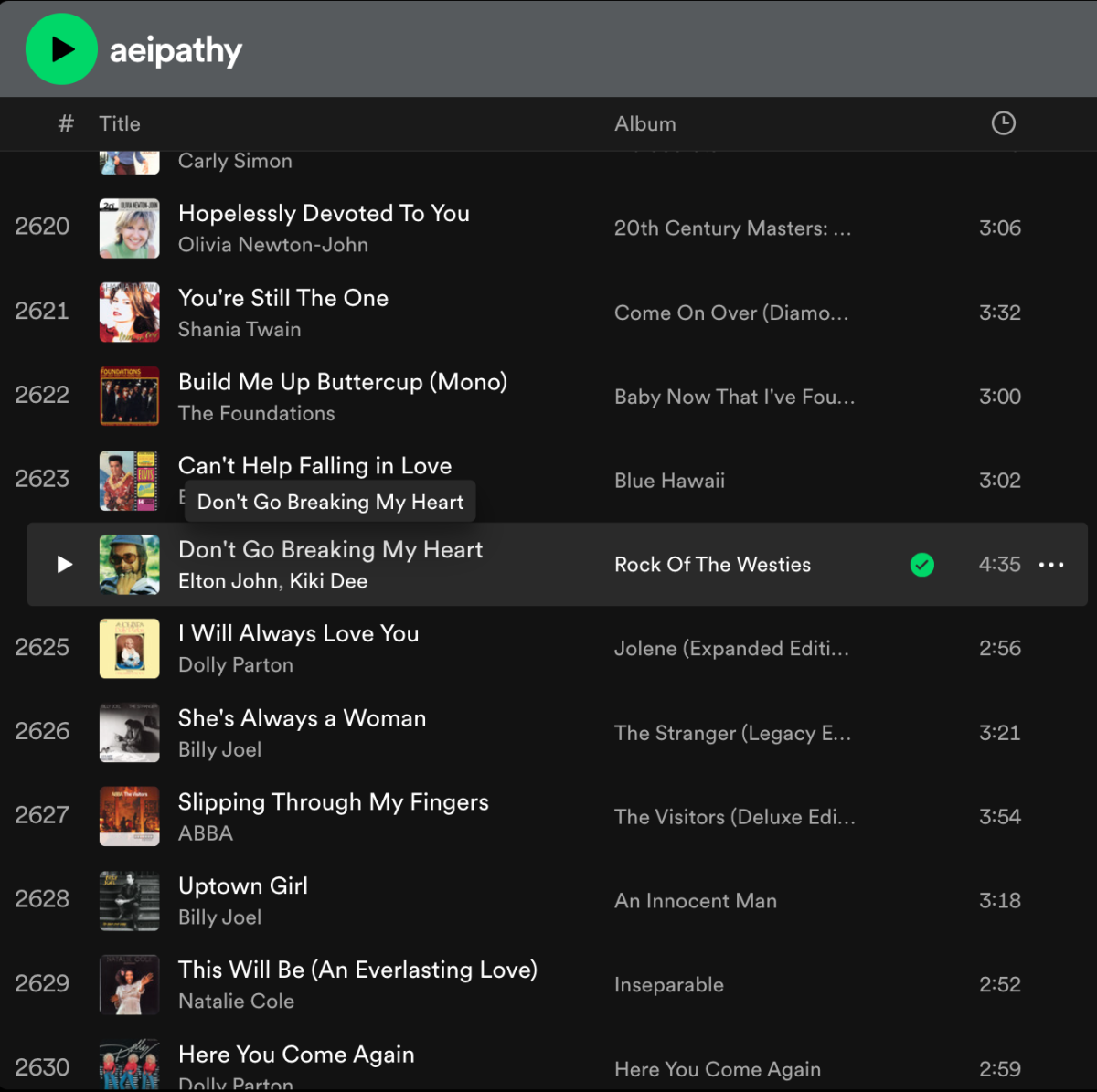National Honor Society members and advisor weigh in on the benefits of the prestigious program

Junior Finn Terwin has found himself increasingly involved in his community this school year.
Following in the footsteps of his older brother and sister, Finn decided to apply to become a member of the National Honor Society (NHS) for a myriad of reasons: it looks appealing on college applications, you receive the opportunity to tutor students through the Academic Success Center, and you are required to engage in a significant amount of volunteer hours.
Although these requirements—including obtaining a 3.5 GPA or higher—seem demanding, becoming a member of the program provides key benefits that are challenging to encounter through other routes in high school.
“It’s mainly community service,” Finn said. “Then, you’re required to tutor five hours of your time and get a total of eighteen volunteer hours by the end of the school year. A 3.5 GPA is pretty difficult to do, especially with a difficult school system, but it’s just hard work. You can’t have three unexcused absences [also].”
Finn has completed many tutoring hours through tutoring a friend in Algebra 2. He struggled to encounter volunteering that he would be pleased with while being passionate about doing; however, Finn excels in math, so tutoring students in math seemed to be an obvious, fitting choice. Finn also appreciates animals and has prospects to volunteer with animals in the near future in order to obtain more volunteer hours.
“Finding time to find the correct community service and stuff that you actually enjoy and have a good cause to do [is challenging],” Finn said. “Something with the Humane Society, with animals, would be [fitting] because I enjoy stuff like that.”
Finn is planning on reapplying to become a member of NHS his senior year because of the benefits that his membership brings. Likewise, Finn has appreciated how the requirements for NHS have brought him into closer contact with his community as well as well-rounded peers.
“It looks really good for colleges,” Finn said. “Having that there shows that you’re a good member of the community. [NHS is] a really good community. You know that everybody in it is a good person, and they want to serve their community in some way. Besides that it looks really good for colleges, you’re doing good things for the community you’re a part of, so it’s important.”
Besides that it looks really good for colleges, you’re doing good things for the community you’re a part of, so it’s important.
— Finn Terwin
Senior Lindsey Lunt, whose application to become an NHS member was accepted both her junior and senior year, shares similar views involving the benefits that being a member of NHS brings.
“There’s a lot of good volunteering opportunities that I wouldn’t have been given beforehand that NHS students can do,” Lindsey said. “It [was] a good thing to join again because I was still applying to colleges. I helped with the three-on-three basketball tournament, volunteered at a soup kitchen, taught kids’ worship classes at my church, and worked different NHS-sponsored events like carnivals [my junior year].”
Through volunteering her junior year, Lindsey learned that there are a substantial number of people in the community who need help, and even an hour of her time was impactful. She also found it relatively easy to find places to volunteer at and appreciated the copious options that NHS provided.
NHS recruits its members through choosing students who exemplify and uphold its four pillars: character, scholarship, leadership, and service. Each student is expected to maintain each pillar, and Lindsey has only faced minor conflict with meeting volunteer deadlines with her packed schedule.
“Just making sure you get all of your hours at the certain deadlines and getting the certain hour requirements [is challenging],” Lindsey said. “It’s not too hard of a thing to fulfill if you’re doing the right things. Do well in school anyways, volunteer because it’s a good thing to do. Since a lot of it is through school, you can sign up with your friends for different events [too].”
Lindsey recommends joining NHS because of the ability that the program has to build character. She believes that the program is able to provide students with life skills that they will constantly utilize in their futures.
“You should join NHS because it’s a good way to build your character through high school and keep prepping you for life past high school,” Lindsey said. “So, volunteering, leadership, and scholarship are all important things to keep going—especially into college. It’s teaching you to already get going on those responsibilities and how to be an active member in your community.”
All NHS students are led by advisor Patricia Richardson. Her role is to coordinate the board, make sure that the board remains on task, and communicate with the administration involving events. She also is accountable for setting the deadlines for specific amount of hours to be due by and viewing and grading submitted applications.
Richardson does not necessarily encourage or discourage applying for membership in NHS. She believes that the decision is truly up to each student, and she argues that it is necessary that each student takes into account the requirements and reflects upon the reality of whether or not they have time to commit to completing additional hours of community service.
“It’s all just a personal choice,” Richardson said. “I think it’s beneficial in the sense that it gives them a way to do community service, but I always encourage kids to do community service even if they’re not [a member]. I think that it’s a nice avenue for kids to be kind of forced into community service.”
Richardson has seen that NHS emphasizes the importance of community service for students. Since students usually do not volunteer naturally, she believes that being exposed to different avenues of service is beneficial for students. The goal of NHS is to provide students with these opportunities in order to stimulate a permanent desire to render service.
“It builds good character for people. It gives you a lot of different opportunities that you wouldn’t necessarily have before. I didn’t expect to be helping out in a lot of the places that I have, but then through NHS, I have been able to go out and connect with different people that I didn’t expect before. It’s a lot of responsibility and time management, but it teaches you a lot,” Lindsey said.

Morgan Mittlestadt is entering her second year on staff for The Central Trend. This year, she will be acting as a Social Media Manager for the site. She...

























































































